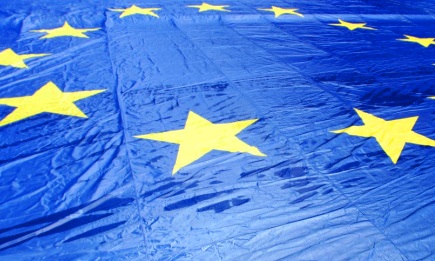No conflict, no turnout

The irony of the European elections is: the more powerful the European parliament becomes, the lower the turnout at the elections. This is even more striking, considering the fact that visibility in de media has increased in the last years.
“Elite contestation leads to media visibility”, says professor Claes de Vreese of the University of Amsterdam. “To put it bluntly: when politicians disagree, people become interested. But the supply side is very important. Journalists like to frame conflict, rows, differences of opinion.”
“Voters will show up if they have a choice. But journalists will only cover the elections if they see a difference of opinion, so in the end it boils down to whether or not parliamentarians are willing to play that role.”
“In those countries where the news in the EU is framed as a conflict, the voter
turnout is highest. Such information is potentially mobilizing information because it shows an electorate that there is something at stake and something to choose from.”
Small minority using social media
The next question is: will social media drive the European voter to the voting booth? De Vreese thinks not: “There is still only a small minority of people using social media for political purposes. It is my conviction that the traditional media will remain most important to focus on.”
The European elections of May 2014 will for the first time give voters the opportunity to choose their ‘next Barroso’ and thus will ‘raise the political stakes’. A recent change in the treaty shifts this prerogative from the European Council – the collective of 27 heads of state – to the European Parliament.
De Vreese thinks this is good news, as this would definitely make the elections for the European Parliament much more political: will the social democrat Martin Schültz become the new Commission President, or maybe even Guy Verhofstadt? At this moment, the biggest political family, the Christian-democrats, still has to choose its leader.
Merkel: no automatic link
Although German chancellor Merkel recently denied any “automaticity between top candidates and filling of posts”, De Vreese still thinks European leaders will definitely take the outcome of next year’s elections into account.
De Vreese: “It would be crazy if the Council would not accept the candidate that was suggested by the European Parliament. Another thing is that the election results might be more scattered than they are now and that the EP would find it difficult to come up with one candidate.”

Meest Gelezen
Vrouwen houden universiteit draaiende, maar krijgen daarvoor geen waardering
Wederom intimidatie van journalisten door universiteit, nu in Delft
Hbo-docent wil wel rolmodel zijn, maar niet eigen moreel kompas opdringen
‘Burgerschapsonderwijs moet ook verplicht worden in hbo en wo’
Raad van State: laat taaltoets nog niet gelden voor hbo-opleidingen

